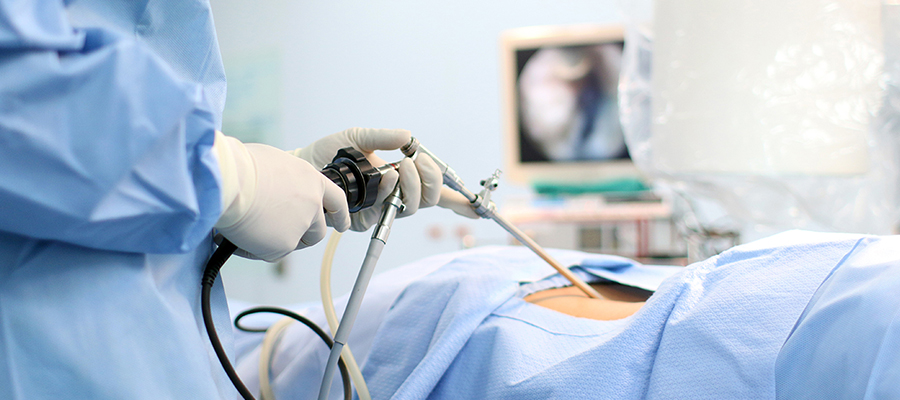
Estimated reading time: 4 minutes and 26 seconds
Hernia Surgery
Comprehensive Hernia Surgery at Aktif International Hospitals
Hernias occur when an organ or fatty tissue protrudes through a weak spot or opening in the surrounding muscle or connective tissue. While hernias can develop in various parts of the body, they most commonly occur in the abdomen or groin area. At Aktif International Hospitals, we offer comprehensive hernia surgery services to repair hernias and restore the integrity of the affected area.
Frequently Asked Questions
What is a hernia, and why is surgery necessary?
A hernia occurs when an internal organ, such as the intestines or abdominal tissue, pushes through a weakened area of the surrounding muscle or tissue, forming a bulge or protrusion. Common types of hernias include inguinal hernias (groin), umbilical hernias (belly button), and incisional hernias (resulting from previous surgical incisions). Surgery is necessary to repair the weakened area, reduce the risk of complications (such as bowel obstruction or strangulation), and alleviate symptoms such as pain, discomfort, and swelling associated with hernias.
Who is a candidate for hernia surgery?
Individuals diagnosed with hernias, experiencing symptoms such as pain, discomfort, or a visible bulge, or at risk of complications from untreated hernias may be candidates for hernia surgery. Factors influencing candidacy for hernia surgery include:
- Type and size of hernia: The location, size, and type of hernia (e.g., inguinal, umbilical, incisional) determine the appropriate surgical approach and candidacy for surgery.
- Symptoms: Persistent pain, discomfort, or complications (such as bowel obstruction or strangulation) associated with hernias may warrant surgical intervention.
- Medical history: Assessment of medical history, previous surgeries, comorbidities, and overall health status to determine the surgical risk and potential benefits of hernia repair.
- Patient preference: Shared decision-making between the patient and healthcare provider to discuss treatment options, risks, benefits, and expectations regarding hernia surgery.
What are the benefits of hernia surgery?
Hernia surgery offers several benefits for patients, including:
- Relief of symptoms: Hernia surgery can alleviate pain, discomfort, and swelling associated with hernias, improving quality of life and functional status.
- Prevention of complications: Repairing the weakened area through surgery reduces the risk of complications such as bowel obstruction, incarceration, or strangulation, which can be life-threatening if left untreated.
- Improved physical activity: Following hernia surgery, patients can often resume normal activities, exercise, and work without restrictions, leading to improved mobility and overall well-being.
- Reduced recurrence: Modern surgical techniques and mesh reinforcement help strengthen the repair site and reduce the risk of hernia recurrence, providing long-term relief and peace of mind for patients.
What are the different types of hernia surgery?
Hernia surgery may be performed using various techniques, depending on the type, size, location of the hernia, and patient factors. Common types of hernia surgery include:
- Open hernia repair: Traditional surgical approach involving a single, larger incision to access the hernia and repair the weakened area with sutures or mesh reinforcement.
- Laparoscopic hernia repair: Minimally invasive surgical technique using small incisions, specialized instruments, and a laparoscope (thin, flexible tube with a camera) to repair the hernia and reinforce the abdominal wall with mesh.
- Robotic hernia repair: Advanced surgical approach using robotic-assisted technology to perform precise, minimally invasive hernia repairs with enhanced visualization and dexterity.
How is hernia surgery performed at Aktif International Hospitals?
Hernia surgery at Aktif International Hospitals is performed by experienced surgeons specializing in hernia repair using the latest techniques and technologies. The surgical process typically involves:
- Preoperative evaluation: Comprehensive assessment of the patient’s medical history, physical examination, imaging studies (if necessary), and surgical risk assessment to determine the most appropriate surgical approach.
- Surgical procedure: Under general anesthesia, the surgeon makes small incisions in the abdomen or groin area (for laparoscopic or robotic surgery) or a single larger incision (for open surgery) to access the hernia and repair the weakened area using sutures or mesh reinforcement.
- Closure: The incisions are closed with sutures or surgical staples, and dressings are applied to the surgical site to promote healing and reduce the risk of infection.
- Postoperative care: Patients receive personalized postoperative care instructions, pain management, and follow-up appointments to monitor recovery, address any concerns, and ensure optimal outcomes.
Why choose Aktif International Hospitals for hernia surgery?
Aktif International Hospitals is dedicated to providing high-quality, patient-centered care for individuals with hernias. Our multidisciplinary team of surgeons, anesthesiologists, nurses, and support staff collaborates to deliver comprehensive evaluation, personalized treatment plans, and compassionate support throughout the surgical journey. We prioritize patient safety, comfort, and satisfaction, striving to achieve optimal outcomes and improve the quality of life for individuals undergoing hernia surgery.
Trust Aktif International Hospitals for Expert Hernia Surgery
If you’re considering hernia surgery or experiencing symptoms suggestive of a hernia, trust Aktif International Hospitals to provide expert evaluation, diagnosis, and treatment options tailored to your needs. Schedule a consultation with our surgical team today and take proactive steps towards hernia repair, symptom relief, and improved quality of life.
Author: Hakkı Yarar


 TR
TR FR
FR ES
ES RU
RU RO
RO